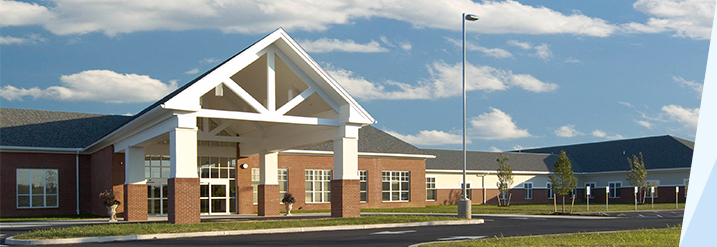Website Recovery Sodus MI
Home
Website Recovery Sodus MI Info
Website Recovery Sodus MI
Then you shouldnʼt be bothered by this page for a long time. The longer the program is, does not usually affect the outcome of treatment once you pass the 90-day mark for treatment. Physician Resources Local physicians can be an invaluable resource for finding drug rehabs near me. Those individuals who often suffer from somepsychological conditions such as anxiety, stress-related disorders, and depressionbegin abusing drugs to decrease the feelings of emotional pain. Drug addiction affects nearly six percent of those residing in the U. One of the earliest warning signs of a developing problem is going through the medication at a faster-than-expected rate.
Therefore it is imperative to heal the root of the illness for successful recovery an approach which begins from the inside-out to get true freedom from the issues causing the addictions. The stifling darkness that people often find themselves in due to the destruction that drugs and alcohol have caused does not have to be a lasting darkness. Have others expressed concern that you have a problem with drugs?
Here are Some More Resources on Cocaine Addiction Detox Facility

Below are Some Even more Resources on Cocaine Addiction Detox Facility Sodus MI
Does their health insurance cover treatment at HMO or PPO insurance rehab centers? Christian counselors are here to help guide you to the Best Christian Treatment Center for addiction. Prescription Drug Abuse Chart - The National Institute on Drug Abuse (NIDA) The 10 most dangerous drugs: Researchers at the University of Bristol, UK, used an evidence-based approach to assess the harm associated with drugs.[3] After considering the physical harm to the user, the drug's potential for addiction, and the impact on society of drug use, they came up with this list: Heroin Cocaine Barbiturates Street Methadone Alcohol Ketamine Benzodiazepines Amphetamine Tobacco Buprenorphine Commonly abused drugs: Amphetamines/Methamphetamine, Anorectic Drugs, Barbiturates, Benzodiazepines, Buprenorphine, Butorphanol, Cannabis, Chloral Hydrate, Cocaine, Codeine, Depressants, Dextroproxyphene, Fentanyl, Flunitrazepam (Rohypnol), Gamma Hydroxybutyrate (GHB), Glutethimide and Methaqualone, Hallucinogens, Hashish, Hashish Oil, Heroin, Hydrocodone, Hydromorphone (Dilaudid), Inhalants, Ketamine, Khat, LAAM, Lysergic Acid Diethylamide (LSD), Marijuana, MDMA (Ecstasy), Meperidine, Meprobamate, Methadone, Methcathinone, Methylphenidate (Ritalin), Morphine, Narcotics, Opium, Oxycodone, Pentazocine (Talwin), Paraldehyde (Paral), Peyote and Mescaline, Phencyclidine (PCP), Psiocybin and Psilocyne and other Tryptamines, Steroids, Stimulants, Thebaine References U. There is no Band-aid big enough for his life.†― , Like “A crack rock-bottom is beneath rock-bottom.
Much more Resources For Vicoprofen Addiction Detox
We promise that you will be in good hands at Road to Freedom. For legal drugs such as alcohol, complete abstention—rather than attempts at moderation, which may lead to relapse—is also emphasized ("One is too many, and a thousand is never enough.") Whether moderation is achievable by those with a history of abuse remains a controversial point, but is generally considered unsustainable.[2] Types of treatment[edit] The brain’s chemical structure is impacted by drugs of abuse and these changes are present long after an individual stops using, This change in brain structure increases risk for relapse, making treatment an important part of the rehabilitation process.[3] Various types of programs offer help in drug rehabilitation, including: residential treatment (in-patient/ out-patient), local support groups, extended care centers, recovery or sober houses, addiction counselling, mental health, and medical care.
Below are Some More Resources on Vicoprofen Addiction Detox Sodus MI
In other cases, people start abusing medication not prescribed for them in order to experience a high, relieve tension, increase alertness, or improve concentration. If a medical detox is necessary, the client will receive detox services at the drug detox center located within most facilities. Studies have shown that integrating faith into rehab can increase the odds for success. Known as Client-Directed Outcome-Informed therapy (CDOI), this approach has been utilized by several drug treatment programs, such as Arizona's Department of Health Services.[32] Psychoanalysis[edit] Psychoanalysis, a psychotherapeutic approach to behavior change developed by Sigmund Freud and modified by his followers, has also offered an explanation of substance abuse.
Click Here for More Information
Previous Next
You may also like:
Buprenorphine Abuse Treatment Facilities Pawhuska OK
Depade Abuse Treatment Program Grand Coteau LA
Fiorinal Rehab Clinic Garden MI
Mdma Addiction Detox Facilities Lombard IL
Ativan Abuse Facilities Bernville PA
Amytal Addiction Peosta IA
Sublimaze Rehab Hospital Near Me Lowman ID
Hydrocodone Rehab Clinic Methuen MA
Ativan Addiction Rehab Aspers PA
Drug Rehab Ohio Plainville GA
Inhalant Addiction Detox Clinic Winfield MO
Luminal Abuse Treatment Lyons WI
Dextrostat Detox Treatment Facilities Prospect TN
Mdma Rehab Treatment Center Eure NC
Methamphetamine Detox Treatment Facility Cape Fair MO
Kapanol Abuse Treatment Dahlgren VA
Flunitrazepam Addiction Detox Clinics Holly Ridge MS
Dextrostat Rehab Hospital Near Me Bellamy VA
Nembutal Rehab Clinics Rand CO
Drug Rehab Clinics Cambridge NE